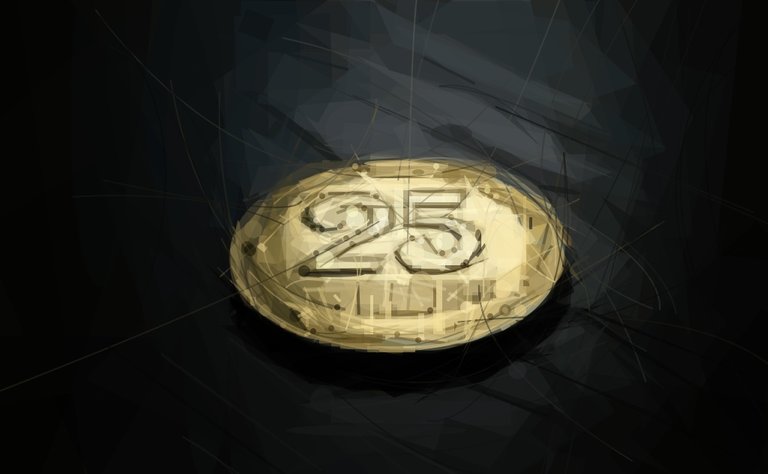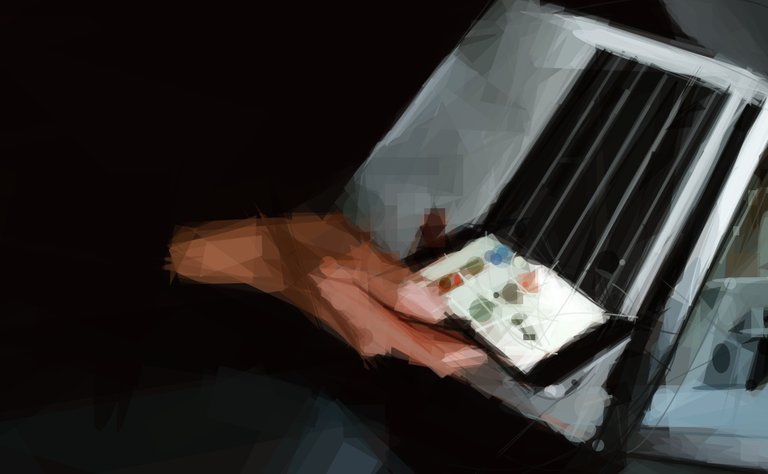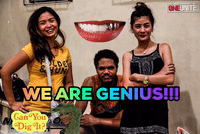Earlier this year, Harvard Business Review published an article titled "The Truth about Blockchain", where it defined Blockchain as a foundational technology and platform, comparing it to TCP/IP, which served as the basis to the development of the Internet.

TCP/IP, according to the view expressed in the article, began with a specific use case, at the start of the 70's, to allow communication by electronic mail on ARPANET, a network from the United States Department of Defense. In the 80's, it started having a localized usage, creating internal networks inside companies. Its usage exploded in the 90's, with the appearance of the World Wide Web, and it sprang enabling a model of substitution for existing traditional business to online versions; e-commerce appeared as an alternative to physical stores, news began being viewed online, and so on. Over the next decade, with the explosion of Internet adoption and technical advancements, TCP/IP began enabling a transformation of the business landscape, supporting the social, mobile and media explosion.
Today, pretty much each business flow, every communication between people and companies go through TCP/IP, in such a natural and implicit way, that no one even thinks about it anymore, such second nature it has become.
This model of progression of impact resonated with me, and it seems to apply so clearly to Blockchain, but even among so much hype and technological promises, it doesn't seem to me that people see this as clearly as I do. Why is that?
Two reasons:
First, what exactly is Blockchain? Every time I talk about it with different people, it seems like a different conversation, like I'm talking about different things. I created a classification of Blockchain usage, based on HBR's vision, to help clear this up.
The four aspects of Blockchain technology application

CryptoCurrency is the first subject. Bitcoin, Ether, and Litecoin, among others. It's when we are talking about BTC's price, investment funds, exchanges, stores accepting virtual currency. It's the original application of Blockchain technology, a very specific application, like e-mail on the TCP/IP analogy. It has significant impacts, especially in the financial market, but it is not as important when we are looking at the technology as a platform.
For the following subject, I put the private and permissioned Blockchains: Hyperledger, Corda, and so on. It's when we are talking about consortiums and B2B scenarios, and enterprise solutions. A localized use case, such as the corporate networks from the previous story, with apparent applications and existing success stories today, allowing considerable impacts in scenarios including supply chain, tracking, and financial transactions. It's an enabler to my platform view, but we should look beyond it.
The third subject is about substitutive applications. It's when we are talking about XYZ on the Blockchain: Airbnb on the Blockchain, Ebay on the Blockchain, Facebook on the Blockchain, and so on. Existing business or user interaction models (usually B2C) built on blockchain platforms such as Ethereum. Just like on the world wide web, these are the applications that will start testing the potential of the technology and build the experience necessary for its expansion, adaptation, and adoption.
The final subject, the one I want to talk about, is about transformation. Distributed applications, preferably on its own blockchain, using the technology's characteristics to build new business models or enable interactions that are not practical or viable today.
Therefore, to visualize this world where blockchain technology is the basis for its services, we need to look at and understand this list of characteristics that enable new interactions and extrapolate their applications on new business models in a world of the future, similar to what Black Mirror does.
And that's the second reason: an incomplete, inaccurate or incorrect view of these capabilities. It's common for people to assume the restrictions of Bitcoin or Ethereum blockchains are restrictions of the technology when we are referring to the visibility of the transactions, their speed, and costs, among other factors. They are not. They are a combination of the design choices of each one, and the state of the art at the moment they have been created. What's important to focus here are the capabilities as design choices, as enablers of new solutions.
What are those capabilities, anyway, which when combined in a specific manner will enable the world to work differently? I'll list a few:
Blockchain Technology Capabilities

Immutability: The technology can guarantee that, once data is recorded, it won't be further changed, accidentally or maliciously. I have a historical record, unchangeable, of all data and transactions tracked by a network.
Notarization: Through cryptographic signatures, you can identify the authenticity of the originator of the information, even if you don't want to reveal the information or the originator's identity. It's not possible to forge this origin, log information retroactively and on behalf of someone else.
Replicated Consensus: The consensus mechanisms guarantees that every interested party has a single, consistent vision, of all data stored. Data conciliation is a matter of the past, as is any inconsistent, conflicting information between parties.
Programmability: Smart Contracts allow the coding of deals, processes and business rules in an executable way in this distributed, resilient and secure structure. Deals can be agreed on in a clear, transparent and immutable way. Processes can execute automatically when a transaction occurs. Information can flow between different blockchains. It's the multiplier to the impact of the other capabilities.
Decentralization: It's an intriguing capability to be explored in two ways: first from the resiliency, the elimination of a central point of failure. A decentralized network is resistant to censorship and infrastructure flaws. The second way is the the disintermediation: the elimination of the middleman from the business processes, the complexity and cost it brings, and the need for trust. Intermediaries usually have the role of adding trust to a process, especially when it involves unknown parties. In a scenario where you have the capability for each party to verify the validity of a transaction, the transaction history of each other, rules agreed can be recorded in a smart contract, and processes of escrow and insurance are automated and distributed in the same chain of trust, this middleman disappears, or at least is distributed. They say, with reason, that the most prominent innovation that Blockchain brings is not about money, but about trust.
Transparency: The ability of every party to validate transactions allows openness by design, reinforcing the removal of the trust requirement, allowing the tracking of any transaction that you would need. An interesting consequence of this characteristic is the end of the requirement of the existence of APIs to have access to information - you can be a part of the network and have direct access to the data or react to transactions the moment they appear.
Anonymity and Privacy: At the same time transparency is a capability, the technology allows you to include in the design all the anonymity and privacy requirements that you have, allowing the record of the existence of information without revealing it, and still execute transactions over that data without revealing values or counterparties while still guaranteeing the consistency of the whole. This mix of transparency, trust, and privacy, in my point of view, is particularly efficient to open new paths towards the creation of solutions that were not previously possible.
Incentives: Lastly, and perhaps the most powerful and most controversial capability of blockchain solutions, are Incentives. Cryptocurrency is nothing more than incentives for the participants to maintain the integrity of a network. On decentralized solutions, they serve as much more than this, as their rules of distribution and usage can be designed according to each use case. They turn the definition of a stakeholder upside down, who in the traditional model is the corporation prioritizing its own interests over its user's, now they can be the users that hold the tokens, and can have power over the processes, governance, and direction of the network. They also go against the model where the product is the user, his data, his attention and his behavior. A blockchain solution allows you to own and be rewarded for the content you generate, and for the value it creates.
Blockchain Tech Development

Those are not necessarily new capabilities, but the key point here is the enablement of previously difficult features, and the flexibility of combining them when designing a next-gen blockchain solution, making tradeoffs that generate unusual and innovative solutions.
Before this blockchain-based future arrives, blockchain projects still need to fail, a lot, to generate the learning and technical evolution necessary to reach this vision. Don't think like someone who in the 80's would say that TCP/IP would never have a global reach due to the lack of cables connecting companies around the world, or in the 90's would say that the Web would never become a media platform due to the hard drives having few megabytes, connections having few kilobytes per second, processors having a few megahertz, or because video compression technology was still rudimentary. I don't think any of the existing platforms are the silver bullets to enable this platform I described, but I do believe we are working towards it, with every experimental development and blockchain adoption.
There's also the issue that the primary focus of the current technical development is turned inwards: technologies wanting to be blockchain platforms without solving business problems, leaving them to someone else to develop over them. Development focusing on the cryptocurrency aspect without adding further business value. Projects that are developed in the blockchain just to say they are, without being design to explore those capabilities. ICOs are focusing on raising money through tokens for solutions that instead of designing transformative ways for their distribution and usage, tack them on as tolls or microtransactions on free-to-play mobile games designed to annoy you enough so you spend money on them.
Blockchain Usability

And there's also user experience: Blockchain should be a technical item in the solution of a problem that demands one or more of those capabilities listed before, and its application transparent and accessible, just like TCP/IP is today. No user has to think about having to use TCP/IP, or what is the receive window size for a segment. In this future, details of the blockchain architecture the solution I'm using should be as irrelevant as which NoSQL database a company is using for its cache.
In 1999, just before TCP/IP took the internet toits transformational step, Andrew Groove, then CEO of Intel, said in a Keynote that in five years, there would be no more internet companies: either you would be on the internet, or you would be no more. How long until there are no more "blockchain projects"? Are you prepared for this moment?
Read this article also at Blockchain Tech Guide.
Up-voted, re-steemed, and followed. Excellent work using analogies to explain. I posted something last night about a paper suggesting that analogies are useful not just for education purposes, but for the purposes of discovery and invention as well.
https://steemit.com/science/@plotbot2015/science-as-structured-imagination
Everything is gonna go blockchain so damn clear!
NICE POST
Indeed, the question is not IF blockchain will become mainstream but WHEN it will become the leading solution in all these domains. I hope to see in 2018 some big financial players actually come to the market with blockchain-based solutions.
Hello @bctechguideablockchainbasedfutu
We have given you our still tinnie-winnie upvote!
You have been determined by a human @authors.leage to be possessing of special gem. Do join the #untalented family!
Abolishing the conditioning attached to IQ tests e.g smart, dull, bum, average and you suddenly give every human a chance to shine!
So e.g if Bill Gates did Microsoft and i can do Macro-hard, arent we both genius? Oh, we both are! Showcase your talents regardless of its nature freely with us in #untalented. Relegate all reservations as flaws are allowed and we sift even the so-called nonsense to find sense therein.
#untalented is an ongoing historical curriculum with initiatives/contests, where each participant wins something. No losers! It is also a core branch of #steemgigs, so please join the SteemGigs community on discord already containing around 700 gifted steemian family members. See this URL for more info
https://steemit.com/steemit/@surpassinggoogle/steemit-s-untalented-is-in-beta-participate-freely-because-every-participant-in-this-contest-will-win-something-no-losers
and also this URL for the discord community
https://discord.gg/CGuPyyT
If you want to vote a witness, you can vote steemgigs too. Simply go to
https://steemit.com/~witnesses
and type steemgigs into the first search box. Stay awesome!

Just incase you find any level or form of gifts, talents, attempts at out-of-the-boxness, or any steemian low in confidence about their abilities, worth, etc; please don't let it slip emptily by.
Kindly call on me! Simply reply to any such post and add @steem-untalented or #untalented to your reply and i will be there to upvote, acknowledge, strengthen and encourage them.
Congratulations @bctechguide! You received a personal award!
Click here to view your Board of Honor
Congratulations @bctechguide! You received a personal award!
You can view your badges on your Steem Board and compare to others on the Steem Ranking
Vote for @Steemitboard as a witness to get one more award and increased upvotes!